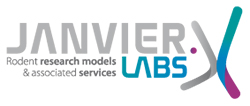Peripheral Progenitor Cell Graft in the Rat: A Technique of Graft Processing
DOI:
https://doi.org/10.23675/sjlas.v34i4.130Abstract
The aim of this study was to establish a procedure for blood progenitor cell graft processing in rats. As a first step the mobilization protocol was optimized. The second step was dedicated to define the optimal source for subsequent graft manufacturing: either peripheral blood or spleen. The third step was designed to establish a protocol for purification of stem cells.
The best mobilization results in terms of white blood cell count, granulocyte colony forming units (CFUG) and CD90 positive progenitor cells were obtained after pre-treatment of the donors for 5 days with recombinant human granulocyte colony stimulating factor (100 μg/kg) in combination with murine stem cell factor (33 μg/kg).
Splenectomy prior to mobilization increased the yield of stem cells from peripheral blood. The numbers of CD90-positive progenitor cells recovered from the spleen of one rat after stem cell mobilization were sufficient to generate one stem cell graft.
Grafts containing 1 x 106 progenitor cells – and thus sufficient for transplantation - were obtained after Tcell depletion and positive selection of CD90 positive cells. The grafts were characterized and showed a purity exceeding 70%, a T-cell depletion of 3.6 log10 and a 3-fold increase in CFU-G compared to the yield post mobilization.







